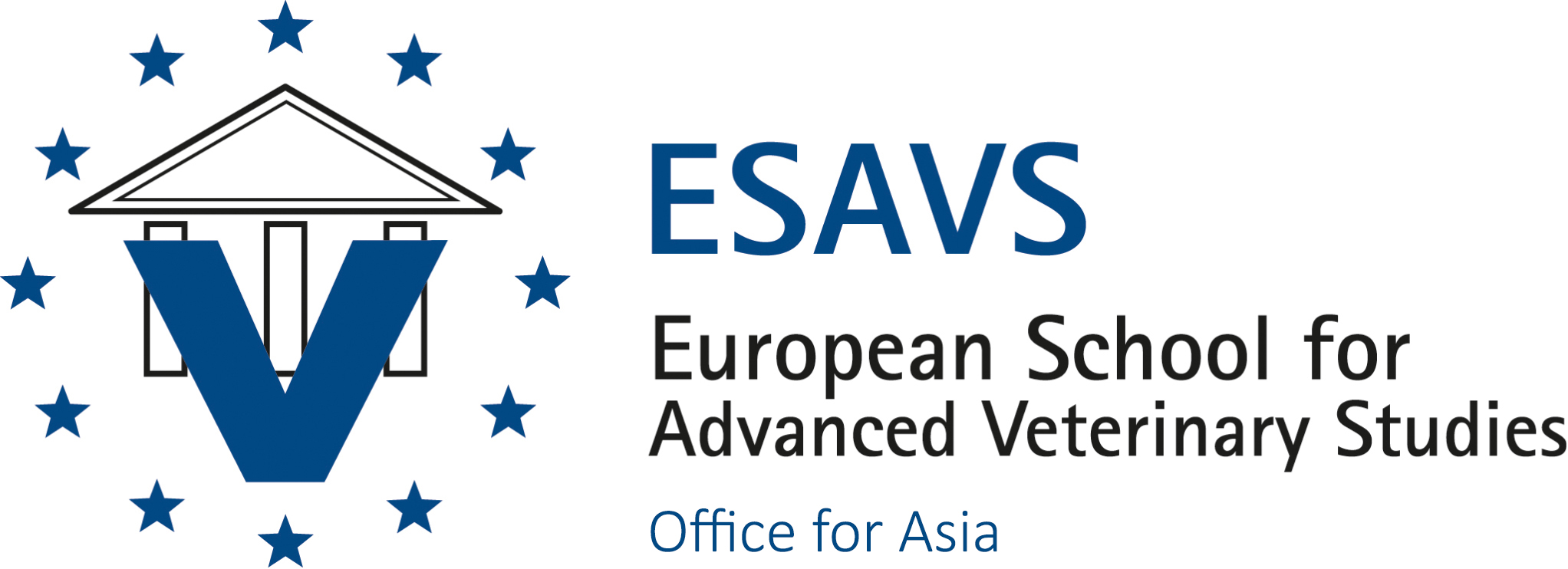Oncology
Individual Courses and Comprehensive Study Program
Cancer is a common disease in pets and one of the main causes of death. Oncology has become one of the fastest growing fields in small animal practice, as clients and veterinarians are becoming increasingly open-minded about treating pets with cancer. Over the past decade, our knowledge of cancer in animals has increased rapidly and today several treatment options exist to treat canine and feline cancer patients in clinical practice.
ESAVS oncology is a comprehensive study program consisting of currently 5 one-week modules. Further, there are 2 additional stand-alone and/or intensive courses on specific topics available (Feline Oncology & Master Class in Medical Oncology (in planning)) that can also be attended alone and independently of the other 5 modules.
Oncology I: Tumour Biology, Diagnostic and Treatment Options & Skin Tumours
“Oncology I” will start with the diagnostic approach to the cancer patient, including cytology, biopsy taking, staging procedures and diagnostic imaging options (radiography, ultrasound, computed tomography…). Further, there will be a detailed discussion of common (surgery, radiation therapy, chemotherapy) treatment options. The course will cover some of the most important skin tumours, bone tumours, anal sac and mammary tumours. There will be a wet-lab session to practice identifying the most common tumour categories. A major emphasis of the course will be on understanding how to approach a patient with cancer including recognizing symptoms, interpreting radiographic findings, choosing correct staging procedures and formulating a therapeutic plan.
Oncology II: Hematopoietic Tumours, Tumours of the Digestive Tract & Bone Tumours
“Oncology II” will build up on Oncology I and address some of the most common canine and feline tumours including haematopoietic neoplasms and oral, gastrointestinal, pancreatic & hepatosplenic tumours. There will be a wet-lab microscopy session practicing blood smear and lymph node cytology. A major emphasis of the course will be again on understanding how to approach a patient with cancer. There will be lots of interactive and case oriented work using a systematic approach to the cancer patient including recognizing symptoms, interpreting radiographic findings, choosing correct staging procedures and formulating a therapeutic plan.
Oncology III: Tumours of the Respiratory and Urogenital Tract, Endocrine & Miscellaneous Tumours
This course continues on advanced concepts in oncology addressing a variety of tumours. Topics include: Nasal & thoracic tumours (& thoracic surgery), Genitourinary tumours & mammary tumours, Endocrine neoplasia, Occular, ear and CNS tumours, Miscellaneous tumours, Challenging cases & case reviews
Oncology IV + V (Oncology Case Management I & II)
In these two 5-day courses participants will practice the work-up of cancer in dogs and cats based on a mixture of common and unusual or challenging cases. Attendees are expected to actively participate in the work-up of cases in small groups or in plenum using a problem-oriented approach. A major emphasis is on learning good decision-making in oncology including for example, choosing correct diagnostic tests, interpreting radiographic findings and cytology samples (wet-lab), choosing appropriate staging procedures and formulating a therapeutic plan. The courses will cover standard and advanced cytology and client communication skills.
Feline Oncology
“Feline Oncology” is specifically designed to provide feline practitioners with the “A to Z” of cancer in cats. This course is ideal for veterinarians with little or no previous knowledge in veterinary oncology, but also highly suitable for feline practitioners, who want to deepen their understanding of feline oncology and get up-to-date with the current state of clinical research. It can be attended independently of Oncology I-III. While major topics of feline oncology will also be covered in Oncology I-III, the Feline Oncology course will cover these topics in greater detail and also address less common feline tumours.
Upcoming Courses
| Course | Date | Registration |
| Oncology 1, Xiamen/China, Dr. Schmidt |
4 - 8 May 2020 New Date: 30 Nov - 4 Dec |
registration open |
| Oncology 2, Xiamen/China, Dr. Schmidt | 30 November - 4 December 2020 | postponed |
| Oncology 3, Guangzhou/China, Dr. Schmidt | 02 - 06 December 2019 |
held |
| Oncology 4, Guilin/China, Dr. Schmidt | 23 - 27 November 2020 | registration open |
| Feline Oncology, Beijing/China, Dr. Schmidt | 19 - 23 August 2019 | held |
| Oncology 5, China, Dr. Schmidt | 06 - 10 December 2021 | coming soon - Interest list open |
|
Course |
Date | Registration |
| Oncology 5, Xiamen/China, Dr. Schmidt | 09. - 13. Dec 2024 | |
| Oncology 2: Hematopoietic Tumours, Tumours of the Digestive Tract & Bone Tumours (Course 2/5), Bangkok/Thailand, Dr. Schmidt | 16. - 20. Dec 2024 | |
| Oncology 3: Tumours of the Respiratory and Urogenital Tract, Endocrine & Miscellaneous Tumours (Course 3/5), Shanghai/China, Dr. Schmidt | 31. - 04. Apr 2025 | |
| Oncology 1: Tumour Biology, Diagnostic and Treatment Options & Skin Tumours (Course 1/5), TBA/Indonesia, Dr. Schmidt | 18. - 22. Aug 2025 | |
| Oncology 3: Tumours of the Respiratory and Urogenital Tract, Endocrine & Miscellaneous Tumours (Course 3/5), TBA/Indonesia, Dr. Schmidt | 24. - 28. Aug 2025 | |
| Oncology 1: Tumour Biology, Diagnostic and Treatment Options & Skin Tumours (Course 1/5), Beijing/China, Dr. Schmidt | 27. - 31. Oct 2025 |


